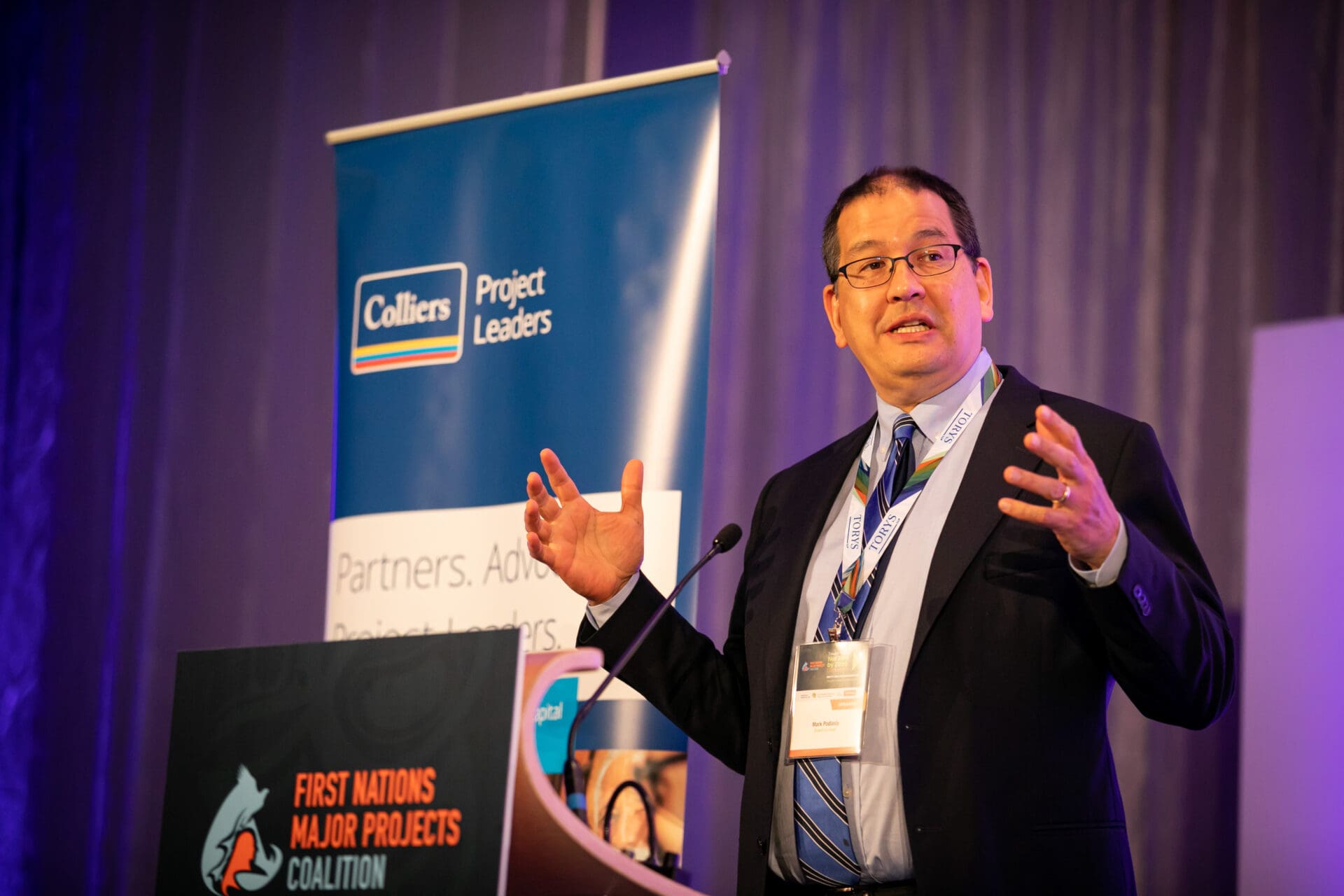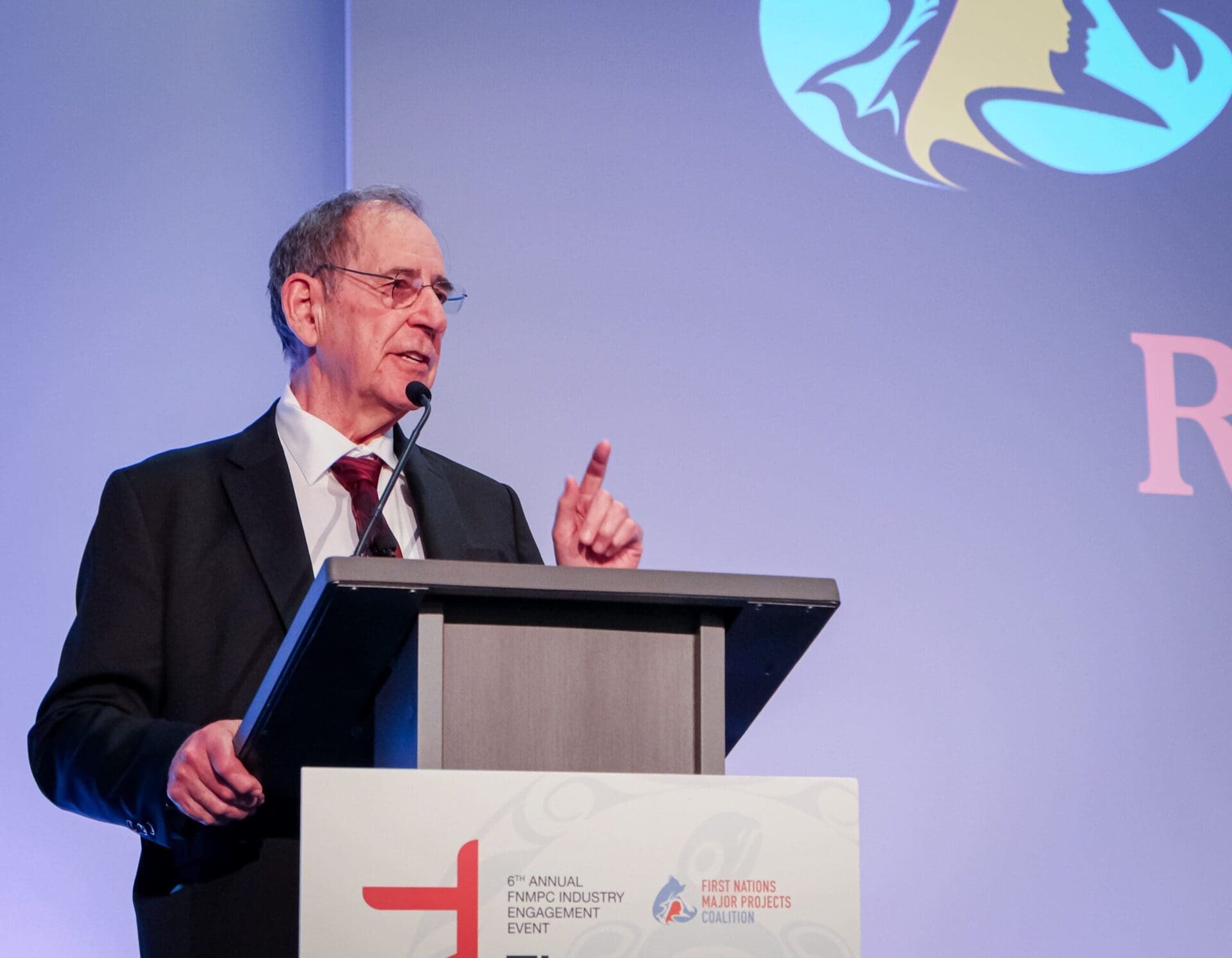2 Weeks Till TVDE Conference
Over 1000 tickets have already been sold.
Don’t miss out on this highly anticipated event.

Innovative Public Policy Supporting Indigenous Investment
Governments can play a vital role in major project success through lessening the regulatory burden and encouraging the incorporation of Indigenous values that benefits all of society.
Since the enactment of the United States Inflation Reduction Act, industry and Indigenous leaders have been giving thought to what similar innovative policy and federal funds allocation could match this initiative in Canada.
The Values Driven Economy Conference will examine today’s leading public policy supporting Indigenous nations ownership or participation in major projects in the United States and Canada, including internal policies of Indigenous nations/governments.
A Great Deal
The Northern Road Link: Marten Falls Community Access Road and the Webequie Supply Road (Ontario)

The proposed Northern Road Link project has been designed to connect the Ring of Fire mineral deposits in the McFaulds Lake area to the highway networks that would allow for mineral exploration activities, proposed mining developments in the area, and could accommodate a future broadband fibre optic line and low voltage power distribution lines.
While the proposed roads will bring economic benefits to the local communities, the project design, assessment, to development will be driven by the Indigenous principles and knowledge of the Marten Falls First Nation, Ogoki #65 and Webequie First Nation, Ontario.
Chief Bruce Achneepineskum, Marten Falls First Nation, and Chief Cornelius Wabasse, Webequie First Nation, who will both be speaking at FNMPC’s The Value Driven Economy Conference (#TVDE), are leading their First Nations to conduct an Indigenous-led environmental assessment under the Ontario Environmental Assessment Act.
The two First Nations have also developed joint principles based on traditional teachings that will be used throughout the engagement process of the project. For example, Webequie takes a three-tier approach. The core tier is ‘The Community and their Overall Well-Being,’ the relational tier is ‘Preserving the Indigenous Culture of the Community,’ and the foundational tier is ‘Treaty and Partnership.’ All are closely connected and depend on each other.
“This road is an economic lifeline for our communities and it will bring jobs, training and prosperity where our youth currently have no opportunities.” — Chief Bruce Achneepineskum of Marten Falls First Nation
Media Spotlight

A recent CBC news podcast covers proponents, government, and Indigenous perspectives on Canada’s efforts to become a leader in the development of critical minerals. Canada has an advantage with vast deposits of critical minerals but must balance mining with potential environmental and social impacts.
Urgency to meet the global demand for critical minerals has prompted enthusiasm across Canada for proponents, governments, and Indigenous nations to become aligned on managing the current challenges that mining projects face. Hugues Jacquemin and Kirsty Liddicoat, Executives of Northern Graphite, shared in the podcast that meeting this global demand includes attracting talent, building initial capital, and developing policy with the goal of getting projects built in a much shorter timeline than the current 12-15 year average.
To help balance this demand and ESG impacts, Indigenous nations must be at the forefront of decisions to secure their rights and interests.
In this segment, Mark Podlasly, Chief Sustainability Officer, FNMPC, explains that “many First Nations are concerned that this new rush for critical minerals, towards the net zero transition, is going to be a repeat of what’s happened in the past. How it should work is Indigenous people have to be included in the environmental and economic decisions of the projects from the start.”
Further education and dialogue is still needed in the critical mineral space to ensure a true net positive can be achieved by Canada to help transition into a just and sustainable economy.
Panel Feature

Indigenous-led Deals Supported by Cutting Edge Policy
Environmental protection is a key factor in decision making for Indigenous nations when considering participating in a major project. Highlighting the leadership of Biitigong Nishnaabeg and their work to come to an agreement with a proponent of a critical minerals mine located within the First Nation’s territory, this panel will discuss an example of how First Nations, the private sector, and government departments and agencies can work together to ensure Indigenous-led solutions on environment impacts are at the forefront in the deal-making process.
As Chief Duncan Michano, Biigtigong Nishnaabeg, shares
The Crown recognized and respected Biigtigong Nishnaabeg’s requirement for a consensus-based process, and we believe we have set a new precedent for how the government can and should work with First Nations on a Nation-to-Nation basis in decision-making
David L. Cohen: Advancing the U.S.-Canada Relationship

The Inflation Reduction Act (IRA) in the United States has set a precedent as the largest investment in climate and energy in history. This innovative public policy piqued the interest of Indigenous nations as it is, in part, designed to accelerate Indigenous equity in major energy projects at an unprecedented scale.
Innovative public policy is critical to enabling Indigenous nations to instill their values into major projects. As the U.S. Ambassador to Canada, David L. Cohen is working on this. Following the ‘Roadmap for a Renewed U.S. – Canada Partnership’, Mr. Cohen is concerned with the continued alignment between both countries in a way that addresses the disproportionate impacts on Indigenous peoples. The report also supports Indigenous-owned small and medium enterprises (SMEs) by leveraging the United States-Mexico-Canada Agreement (USMCA) while working with Indigenous peoples to advance climate solutions.
“I think that’s the way you build back better after the pandemic. It’s not just a matter of coming back but making sure we are coming back in an equitable fashion.” – David L. Cohen, U.S. Ambassador to Canada.
